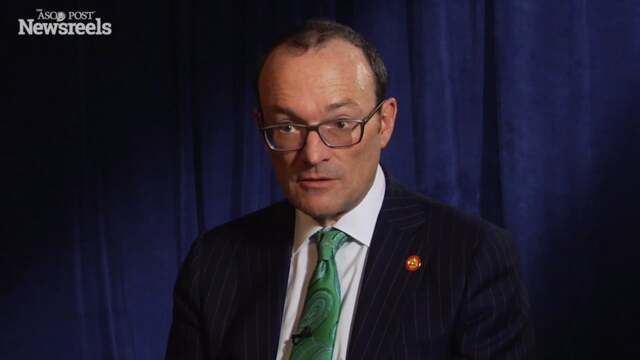Anthony Zietman, MD, on Accelerating Treatment: RTOG 0415 Study on Prostate Cancer
2015 ASTRO Annual Meeting
Anthony Zietman, MD, of Massachusetts General Hospital, discusses the practice-changing results from a study comparing fractionation schedules in patients with low-risk prostate cancer (Abstract LBA6).
Catherine C. Park, MD
Catherine C. Park, MD, of the University of California, San Francisco, summarizes results from three clinical trials of radiation therapy for various cancers: metastatic melanoma, oropharyngeal squamous cell carcinoma, and breast cancer (Abstracts 215, 3, and LBA7).
Bruce Minsky, MD
ASTRO President Bruce Minsky, MD, of MD Anderson Cancer Center, talks about the goals and highlights of this year’s ASTRO Annual Meeting.
Brian D. Kavanagh, MD
Brian D. Kavanagh, MD, of the University of Colorado School of Medicine, summarizes three papers: outcomes for locally advanced non–small cell lung cancer, 3D CRT vs image-guided intensity-modulated radiotherapy for reducing bowel toxicity, and dexamethasone for controlling pain flares in patients with bone metastases (Abstracts 2, 8, LBA6663).
Jay Harris, MD
Jay Harris, MD, of Dana-Farber Cancer Institute and Brigham and Women’s Hospital, discusses the difficulty reconciling recent important trials on radiotherapy for breast cancer: The Z11 trial suggested that breast tangents are sufficient, while MA.20 and EORTC studies suggested that full nodal irradiation is beneficial.
Anita Mahajan, MD
Anita Mahajan, MD, of MD Anderson Cancer Center, summarizes results from three clinical trials on radiation therapy for ependymoma, locally advanced thoracic esophageal squamous cell carcinoma, and meningioma (Abstracts 31, 1, 7).





